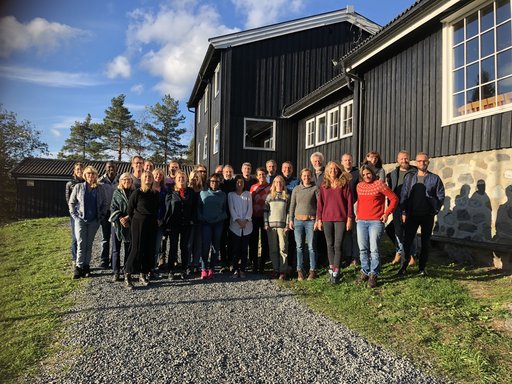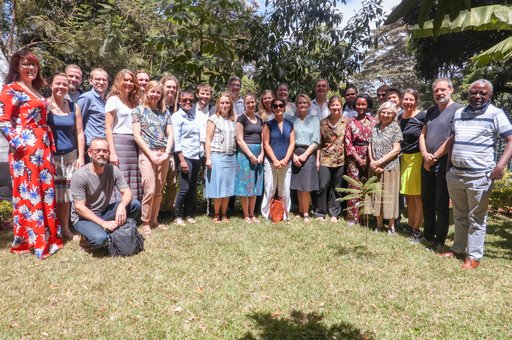Training
The doctoral training program has four overall pillars:
- Training: Development of theoretical, conceptual and methodological approaches, critical, regional, historical, interdisciplinary and inter-sectoral analysis of human security challenges.
- Fieldwork: Development of first-hand empirical data in the field(s) of focus in Sub-Saharan Africa.
- Secondment: Development of practical skills in the application of findings and policy analysis in co-operation with non-academic institutions involved in planning, communication, and policy.
- Dissemination: Thesis and academic article writing, preparation of policy briefs and sharing of research through social and visual media.
Training: Contains the development of theoretical, conceptual and methodological approaches and critical, regional, historical and interdisciplinary analysis of human security dynamics and challenges. For the ESRs, this will include mandatory courses at the primary university, a network-wide opening workshop including conceptual training, three 10-14 days long Summer Schools and workshops. All supervisors and ESRs will attend the main training events. In addition, specific partners and advisors will be invited for each event to contribute with lectures and other input.
Fieldwork: Development of first-hand empirical data in the field(s) of focus. This will include carrying out 12 months of ethnographic fieldwork using participant observation, interviews, focus group discussions and other qualitative methods, as well as visual methods, small surveys, and archival work when relevant. The period of fieldwork will start with summer school 1 on theory, methods, and ethics, and fieldwork will be intersected by summer school 2, focusing on the human security analysis of the material being gathered. The period of fieldwork will overlap with the period of secondment.
Secondment: The ESRs will be seconded to selected partner institutions in order to develop the practical skills needed to use findings and policy analysis. This will include participating in the partner institution’s daily work, carrying out analyses, and communicating research findings in policy briefs and other media. The ESRs will be supervised in the field during their secondment to ensure the relevance of their work as well as the mutual alignment of expectations between partners. The secondment experience is of utmost importance for the ESRs development of independent career paths and future employability.
Dissemination: Writing a PhD dissertation, articles and chapters, writing policy briefs, and sharing research findings through social and visual media. For the ESRs this will involve participating in the summer school on writing and using visual and social media for dissemination. The ESRs will do a video interview relay at their place of secondment and involve partners with each other by asking them to pose a question to one of the other partners and ESRs. This will ensure internal communication and knowledge sharing in the project. The edited video interviews will be available at the ANTHUSIA website for wider dissemination to stakeholders. The writing of the PhD thesis and publications will be done independently but under close supervision of main and co-supervisors. Co-authoring one academic article/book chapter with supervisors will provide the ESRs with hands-on skills for the international publishing.

